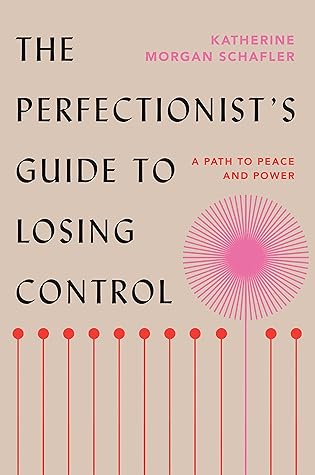More on this book
Community
Kindle Notes & Highlights
Read between
February 5 - February 14, 2025
Perfectionists are intelligent people who understand that everything can’t work out perfectly all the time. What they sometimes have trouble with is understanding why they still feel so disappointed by imperfection in the face of that intellectual concession. What they sometimes wonder about is why they feel so compelled to endlessly strive. What they’re sometimes confused by is what they’re striving for in the first place. What they often question is why they can’t just enjoy relaxing “like a normal person.” What they want to know is who they are outside of what they accomplish.
Ieva Reinholde liked this
Procrastinator perfectionists wait for the conditions to be perfect before starting. Dwelling in hesitation, they live alongside the void that forms within you when you don’t do the thing you most want to do.
The problem for these perfectionists is that starting a process taints it—now that it’s real, it can no longer be perfect. If something is perfect to them, it exists only in past memory or future ideal.
Procrastinator perfectionists have plenty of discipline and aren’t lazy at all. What they don’t have is acceptance. Acceptance that now is the only time anyone ever starts anything, and that starting now means you’re taking something that’s perfect in your mind and bringing it into the real world, where it is bound to change.
Perfectionists never stop noticing the gulf between reality and the ideal, and they never stop longing to actively bridge the gap.
Women feel an increasing sense of liberation as they age, not because they’ve finally achieved the balance they were searching for but because they’ve finally given up on it.
Balance is always around the corner, after the holidays, as soon as this very serious situation is handled. Balance never actually shows up, but we don’t notice because we’re too busy blaming ourselves for its delay.
When you’re disconnected from your self-worth, you think your ability to feel joy is won through goal attainment.
You don’t earn your way to joy. Joy is a birthright. So is love, freedom, dignity, and connection. As the inimitable James Baldwin said, “Your crown has been bought and paid for. All you have to do is wear it.”
Control is maximized because when you feel powerless, being controlling feels like the responsible thing to do.
What doesn’t kill you might traumatize you to the point of disintegrating your memory recall. What doesn’t kill you might push you into addiction. What doesn’t kill you might make you suicidal or parasuicidal.
Perfectionists interpret the experience of being tired as if they did something wrong and need to correct for their error.
It continues to be a head-spinning truth for perfectionists to accept: a significant amount of rest every single day is required for human beings to function—we can’t believe it, we can’t get over it.
Women’s relationship to eating food is a microcosm of what happens when pleasure is pathologized. When eating is designed to be a functional act instead of a pleasurable act, there’s no point in consciously asking yourself, “What do I want to eat?” The question instead becomes, “What am I supposed to eat?” When you conflate pleasure with sin outside the context of food, there’s no point in asking yourself, “What do I want to do?” The question instead becomes, “What am I supposed to do? How am I supposed to be behaving?”
You feel free to do what you don’t want all the time. I’m asking you to seriously consider whether that’s where you’d like your sense of entitlement and freedom to remain.


